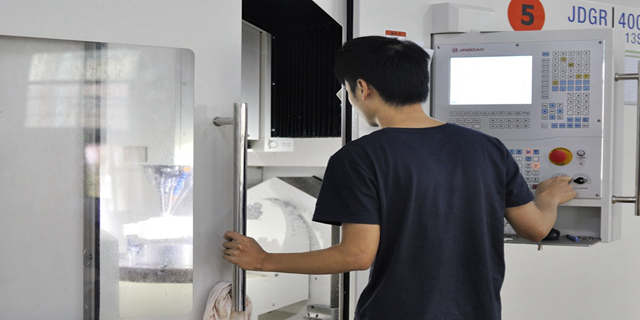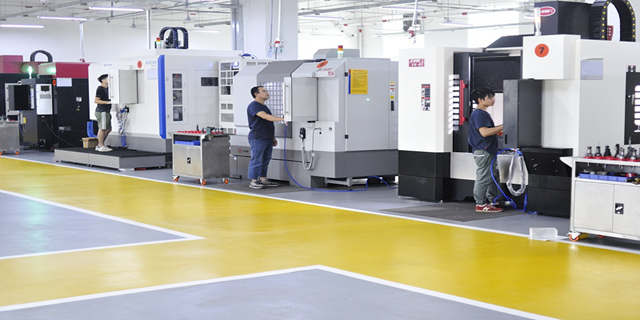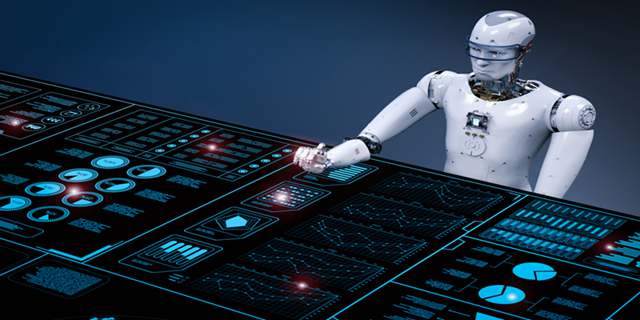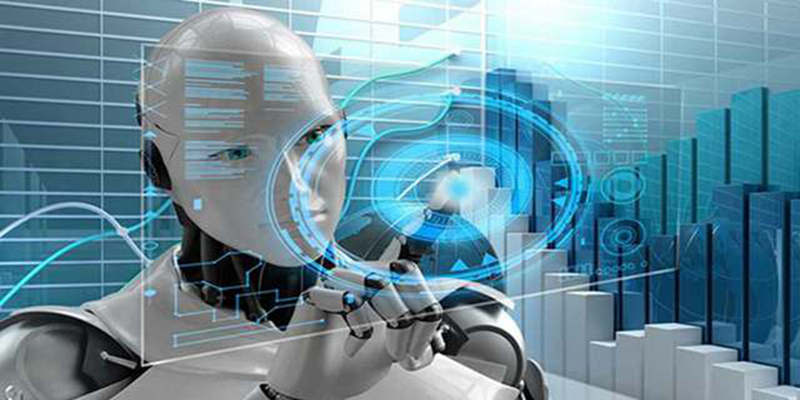Posted on March 1st, 2019 | By Hailey, WayKen Project Manager
Artificial Intelligence (AI) is “fuel for growth,” the manufacturing industry is in an excellent position to achieve from its application, unlike other business sectors. For some time, CNC machining has been the leading technology in manufacturing services, but introducing Artificial Intelligence technology has threatened to take over the operations of CNC manufacturing.
Is Artificial Intelligence Taking Over?
Artificial intelligence is no longer a field of academic researchers. However, machine learning and deep learning are becoming mainstream technologies that many organizations are ready to harness. This could have a positive impact on many industries, including manufacturing.
AI is ushering a new era in industrial development. A revolution that has triggered three manufacturing dimensions: mechanical, electrical, and digital technologies. Now, the AI is ready to drive the fourth revolution, “Industry 4.0”.
When you think about artificial intelligence, the chances of having endless thoughts of super-intelligent computers and robots taking over humanity disturbs you. However, that’s far from reality.
Artificial intelligence is the operation of algorithms that automatically optimize themselves as they go-a a process known as machine learning.
The technology is looking to revolutionize the world and change how to prototype manufacturing is done. There is some exciting application of CNC prototyping assisted by Artificial Intelligence leading the way.

How AI is Helping the CNC Manufacturing Sector
It’s real and already happening in the manufacturing sector. The application of Artificial Intelligence technology has made a significant reduction in unplanned downtime and the designing of products. Manufacturers are using AI analytical data to increase efficiency, quality, and employee safety.
Let’s take a glance at how AI is transforming the manufacturing sector.
Direct Automation
They use mainly artificial Intelligence in industrial manufacturing as it transforms into mass production. Robots can do recurring activities, rising competence, building automation solutions, designing production models, delivering high quality, and has no human error.
Non-Stop production
Humans work three shifts to ensure continuous production while robots work 24/7 in a production line. With this capability, business grows and expand in terms of production to meet the market demand.
Conducive Operational Environment
Integrating Artificial intelligence means fewer humans doing dangerous and heavy work. Having robots replacing humans has led to a minimal number of accidents in workplaces.
Better products with procreative design
Artificial Intelligence is changing how products are designed. In one method, known as generative design software. Engineers and designers enter brief details as AI algorithm input. They include data stating the restriction parameters such as material type, available method of production, budget limits, and time constraints.
AI Algorithms explore a solution before proposing the best. They put the answer to the test through machine learning and offer further awareness of which design works best.

Adaptive to ever-changing market
Artificial Intelligent is a crucial element of the industry 4.0 revolution. It does not limit its uses to only production processes. They also use AI to enhance the manufacturing chain by helping a company expect market changes. Therefore, giving management the advantage to prepare a strategic plan on how to counter the market waves.
Artificial Intelligence comes up with market estimates after looking on several patterns from linking locations, macroeconomic factors, political status, social-economic, consumer behavior, and many others.
The gathered information is vital to the manufacturing service sector as it guides the industry on issues of staffing, inventory control, the supply of raw material, and energy consumption
What is CNC Machining?
CNC refers to the use of a computerized numerical controlled machine. It’s a technology widely used to do a range of tasks related to the manufacturing industry. CNC machining is a process in the manufacturing service sector that uses a set of computer codes that are already pre-defined on how to control the existing machinery such as the grinder, milling machine, and lathe.
How Artificial Intelligence is Affecting CNC Machining
Like any other industrial process, CNC machining has the potential to go wrong. However, Artificial Intelligence is here to help.

Reduced Machine Downtime
Machines develop faults because of many issues like parts getting worn out, equipment’s going out of calibration, and sometimes they develop a fault for no reason. When such a thing happens, it wastes time when the operator is trying to locate the origin of the problem.
The main benefit of applying AI technology to CNC machines is to save time by enabling self-diagnosis. The machine learns about its normal operations. Thus, when a fault develops, it’s detected, and the software tries to solve the problem.
Optimization of Machines
Apart from using collected data for diagnostics, a more advanced Artificial Intelligence analyzes that data and alter the settings of the machine to optimize the prototype manufacturing. For example, if the collected data show a reduction in pressure leads to a perfect finished item, the CNC machine gets instruction from AI to make the adjustments automatically.
Quality Control
In CNC manufacturing, the end product sometimes can be incomplete. Artificial Intelligence can help to maintain consistency on the output.
By using software such as Autodesk FeatureCAM, the AI guarantees the quality of the finished prototype. Hence, the output of the CNC machine is monitored, and adjustments are automatically implemented for continuous consistency.
Conclusion
Artificial Intelligence has the potential to improve and extend the proficiencies of humans and benefit businesses to succeed more swiftly and more efficiently. The technology can solve some critical internal challenges that are ailing the CNC manufacturing service industry; Where there is a shortage of experts to make complex decisions, integration issues, and overloaded information.
The prototype manufacturing is positively linked up to more manufacturing services via cloud computing with AI optimization mechanism, diagnostic ability, and self-modification. Only means the future of CNC manufacturing industry gets better with the help of Artificial Intelligence.





